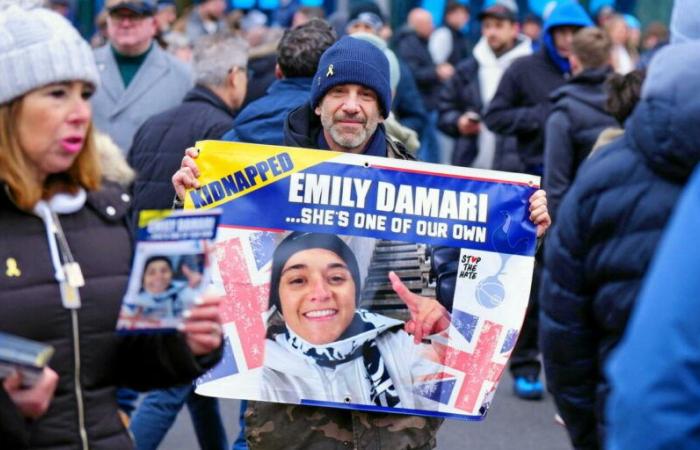After more than a year of war, the truce between Israel and Hamas marks a decisive turning point in the conflict. This Sunday, January 19, the Al-Qassam Brigades, the armed wing of Hamas, published the names of three Israeli hostages who must be released during the day. This agreement provides for the gradual release of 33 Israeli hostages in exchange for hundreds of Palestinian prisoners over the next six weeks.
Initially scheduled for 7:30 a.m. (Paris time), the entry into force of the ceasefire was delayed. Israel demanded to receive the list of hostages before giving the green light. It was not until 10:15 a.m. that the truce could officially begin. Among the first people to be released are Romi Gonen, Emily Damari and Doron Steinbrecher, three women whose names, finally revealed, raise hope after months of captivity.
Romi Gonen
Romi Gonen, 24, was captured while attending the Tribe of Nova festival. She was on the phone with her mother when she was kidnapped after being hit by gunfire. Since then, his family, especially his mother, has fought for information, traveling to the Gaza border to send messages of hope.
“It was very, very hard for me to enter Romi’s room for 47 days. And now we are in this room and the emotions are very, very strong,” Romi’s father told the Jerusalem Post.
Emily Damari
Emily Damari, 28, holds dual Israeli-British citizenship. She was kidnapped from her home in Kfar Aza, a kibbutz particularly affected during the attack. Of the 37 residents of the “youth” neighborhood, 11 were murdered and seven were kidnapped and taken to the Gaza Strip.
His mother publicly expressed her concerns to the BBCa month ago, discussing the inhumane conditions of detention of his daughter. “If she is not dead, she does not have enough to eat, she is not able to wash herself, to drink water, she could be sick,” she confided.
-Doron Steinbrecher
To Discover
Kangaroo of the day
Answer
Doron Steinbrecher, 31, a veterinary nurse, was alone in her apartment when she was kidnapped. She remained in contact with her married sister, Amit Ashkenazi, and their parents, who also live on the kibbutz, according to The Times of Israël. The young woman was undergoing extensive medical treatment, to which she has no longer had access since her kidnapping, a deep source of anguish for those close to her.





